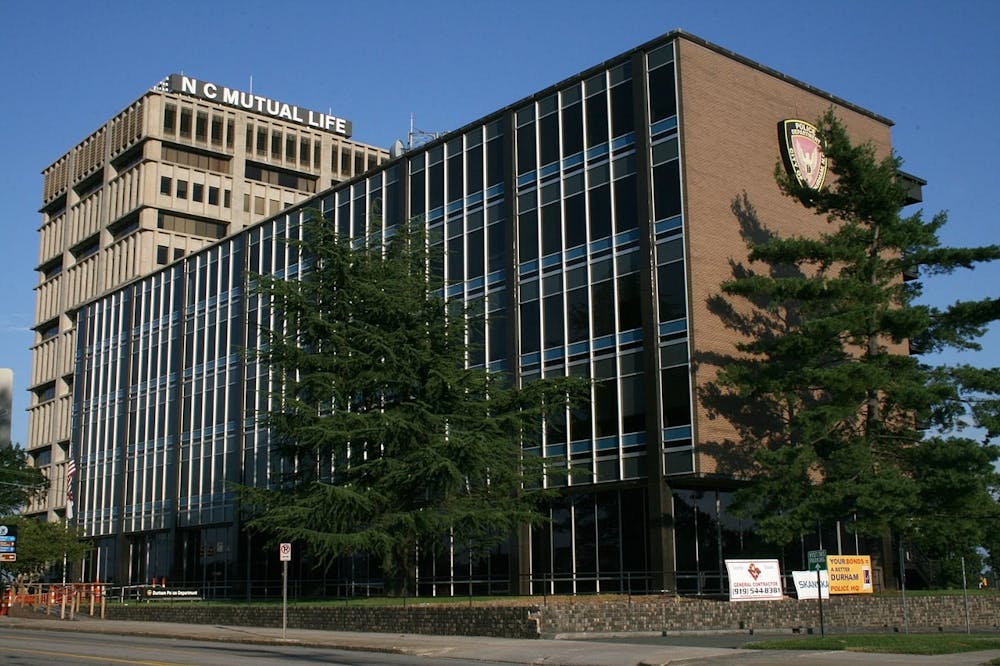Durham City Council unanimously voted Jan. 18 to raise the pay of Durham police officers and firefighters, which became effective Jan. 28. The raises will cost Durham $9 million each year.
Police recruits received a 10.6% raise, resulting in their annual pay increasing from $38,511 to $42,593, while firefighter recruits received a 14.3% raise, their annual pay increasing from $35,592 to $40,682. Higher-ranked officers and firefighters also received an equal percent increase in their annual pay.
This plan comes amidst a 40-year high 7.9% inflation rate in the United States, potentially mitigating the effects of this raise. The average base salary for a police officer in North Carolina is $42,412, which is 22% below the national average. The average base salary for a firefighter in North Carolina is $39,477, 23% below the national average.
The raises were implemented due to vacancy and retention issues in both departments. From November 2020 to November 2021, the police recruits’ turnover rate rose from 43% to 56% and the police officers’ turnover rate rose from 10% to 16%. Within a year, the turnover rate for firefighters more than doubled, rising from 3.4% to 8.1%.
Jimie Wright, president of the Professional Fire Fighters of Durham, told CBS17 that the fire department had seen 31 firefighters leave in the past year.
“We’re short now because of COVID, because of firefighters who have left, and we have been shutting trucks down each day,” Wright said.
The DPD used to lose three to five officers a month, but that number has recently skyrocketed to eight officers, Larry Smith, the spokesperson for the Durham Fraternal Order of Police and retired deputy chief of the Durham Police Department, told CBS17.
Before the raises came into effect, the pay for Durham’s police and firefighters was significantly lower compared to nearby municipalities. A study conducted by the city last August found that DPD salaries were 12.4% lower compared to that of other cities, while fire department salaries were 10.4% lower.
In December 2021, staffing issues within the DPD reached such extremes that police officers were sometimes told not to enforce certain laws. For example, they were told to not check for trespassers at night in city parks and to not stop drivers for running a red light.
“If we witness something not deemed a violent crime or in-progress crime, we are told to leave it alone,” one officer told WRAL.
Durham Police Chief Patrice Andrews and other high-ranking police managers had even begun to take on patrol shifts to account for staffing shortages.
In 2021, Durham saw a jump in crime, with a record-setting 44 homicides. This made 2021 the deadliest year on record.
Overall, crime in Durham is 96% above the national average, with violent crime being 121% higher.
Compared to 2020, there was a 58% increase in homicides and an 18% increase in the number of reported rapes. However, aggravated assaults dropped by 13%, accompanied by a 15% drop in robberies.
In 2017, an adopted city plan called for market adjustments to police and firefighter salaries, as well as raises given to employees based on effective job performance. However, in 2018 and 2019, pay rates remained the same. Due to the pandemic, these pay rates were still not adjusted in 2020 and 2021, and performance-based raises were not issued. The 2022 plan hopes to raise salaries back to market level.
“It’s not a final destination, but it’s an incredibly important step towards closing disparities in compensation for our workers here in Durham,” Mayor Pro Tempore Mark-Anthony Middleton told IndyWeek.
Get The Chronicle straight to your inbox
Sign up for our weekly newsletter. Cancel at any time.

Jazper Lu is a Trinity senior and centennial/elections editor for The Chronicle's 120th volume. He was previously managing editor for Volume 119.

